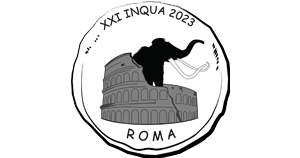Carissimi Soci SGI,
Carissimi Soci Società Associate,
su indicazione della Prof.ssa Silvia Danise (Università di Firenze) e della Dott.ssa Valentina Bracchi (Università Milano Bicocca), vi segnaliamo la call for abstract relativa alla sessione "Conservation paleobiology: late Neogene to Quaternary records as a baseline for conservation of modern ecosystems", organizzata nell'ambito del congresso INQUA 2023.
Cordiali saluti,
La Segreteria
la deadline per sottomettere un abstract al XXI INQUA congress "Time for change" (https://inquaroma2023.org/) si sta avvicinando, e vorremmo invitarvi a contribuire alla nostra sessione "Conservation paleobiology: late Neogene to Quaternary records as a baseline for conservation of modern ecosystems" (Scientific theme: 4: Ecosystems and biogeography from latest Pliocene to "Anthropocene").
Il congresso si svolgerà a Roma, presso l'Università La Sapienza, dal 14 al 20 luglio 2023.
Ecco il link per inviare il vostro abstract: https://inquaroma2023.org/abstract-submission/
La deadline è l' 1 Novembre 2022.
Speriamo di vederci a Roma!
Cordialmente,
Valentina Bracchi, Silvia Danise, Erin Saupe, Rafal Nawrot & Nadia Santodomingo Aguilar
Session 36: Conservation paleobiology: late Neogene to Quaternary records as a baseline for conservation of modern ecosystems
Despite the influence of paleontology on ecology since the 18th century, the discipline of conservation paleobiology was only formally established in the first decade of the 21st century. Conservation paleobiology applies geological and paleoecological methods and data to the conservation of modern species and ecosystems, with the advantage of lengthening the scale of observation far beyond the timescale of direct ecological monitoring (i.e., from centuries to thousands and million years). Marine and terrestrial geohistorical archives constitute the core information to better understand how biotas have responded to past climate and environmental changes, and to disentangle what can be deemed to recent anthropogenic stressors. This approach provides context and guidance in a changing world and can address challenges faced by modern conservation biology, such as understanding the extinction risk of endangered species, providing baselines for restoration, and modelling future scenarios for species' range contraction or expansion. In this context, we seek contributions that explore late Neogene and Quaternary changes in the structure and composition of past communities, ecosystems and environments through time. Studies depicting hypothetical scenarios of community and geosystem dynamics in the face of future climate and anthropogenic change, which rely on multi-disciplinary and multi-scale approaches, are especially encouraged. Both terrestrial and marine records are welcome.

